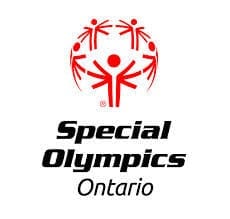Pan Canadian Policies
This section contains the Pan Canadian Policies of the organization.
You can filter/search all the resources related to this section here:
-
December 17, 2018Pan Canadian 4000-13 Peer Mentor Policy- 20174000-13 PAGE 1 OF 1 Peer mentors are athletes with an intellectual disability who have successfully completed the Peer Mentorship program. The Peer Mentorship program provides the athlete with knowledge, skills and confidence to take on a mentorship role within a Special Olympics sport program. Peer mentors will support and assist the head coach within a sport program. Athletes are eligible to take the Peer Mentorship program if they meet the following eligibly requirements: Have been endorsed by their chapter in accordance with the Special Olympics Canada Endorsement Policy Are 18 years of age or older Have been registered as a Special Olympics athlete for at least 5 years in the sport in which they wish to support Endorse by their applicable coach in the sport in which they desire to mentor in order to ensure proper sport knowledge Athletes are eligible to become a peer mentor if they: Complete the Peer Mentorship Program Ascertain prior approval from the applicable program Head Coach to act as a Peer Mentor Agree to comply with Special Olympics’ Code of Conduct Are currently registered with Special Olympics Canada Comply with the screening requirements as required by the Chapter Will be mentoring in a sport they are not currently involved in as an athlete or, in sports where athletes compete by ability level (such as Floor Hockey A or Floor Hockey B), they will be working with athletes of at least one level lower than themselves Peer mentors will not: Make up part of the coach to athlete ratio in any situation Serve in a supervisory role
-
September 13, 2019PanCanadian Policy PreambleIn an effort to ensure minimum standards across the country for Special Olympics programs Special Olympics Canada is working on a suite of policies that all Chapters will be adopting. These PanCan policies represent the minimum standards that are expected organizationally. The approved PanCan policies have been included on the Resource Library as a point of reference for our members. Special Olympics Ontario will continue to uphold our organizational policies while ensuring we comply with the minimum standards that have been set by SOC.








